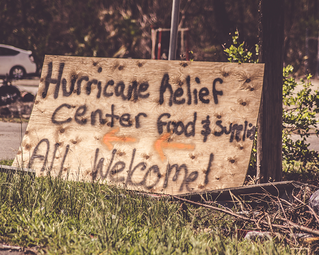
When Should You Donate?
Think back on the past few years and ask yourself: When do you usually donate? Are you volunteering during the holidays? Giving money when people in your life ask for you to join them in supporting a cause? While there is nothing wrong with donating at any time, your donations can do the best if you build a giving strategy with the needs of nonprofits in mind.
Why You Should Do Recurring Donations
Whether it's television, meal kits, make-up, or games, chances are you have a subscription where you're automatically billed monthly, quarterly, or annually. Subscriptions have proliferated in most areas of our life, and it follows that more and more donors are turning their one-time annual gifts into automatic recurring gifts. The impact of recurring giving programs on nonprofit programmatic innovations simply cannot be overstated.
If you're on the fence, here are a few reasons why you may want to consider turning your one-time financial gifts into recurring gifts:
● It's easier on your budget and less of a hassle for you and the charity.
Like your other subscriptions, recurring donations are automatic and effortless. This saves charities' effort in asking you to donate again and saves you from having to fill out donation information repeatedly.
● Your support makes more of a difference.
Nonprofits with a robust recurring giving program are able to better set long-term strategic plans, knowing they'll have a certain level of support from recurring donors.
● It shouldn't stop you from taking advantage of donation matches.
If you love to multiply the impact of your generosity by donating to match campaigns. As long as you reach out to an organization to confirm they will accommodate your wishes, you can have a gift (or gifts) from your recurring giving plan allocated toward an active match campaign when they occur.
Similarly, charities with volunteer needs can benefit from consistency. Do you have two hours a week or a Saturday per month that you can commit to an organization? Putting yourself on their schedule (and showing up!) is a great way to provide stability and support for an organization. These opportunities are increasingly available online as well as in person. Find the best match for your skills, interests, and availability here.
Times When Recurring Donations Aren't Appropriate
While recurring donations have many benefits, they are not the be-all-end-all of giving. There are reasons that charities may prefer to receive donations and volunteer support at particular times.
Processing donations can be costly. For smaller donations, organizations may prefer to receive lump sums. If you aren't sure what a charity prefers, ask! Preferences will vary, and organizations know exactly what they need to thrive.
Organizations may also face volunteer boom and bust cycles throughout the year. For example, food banks often have an excess of volunteers during the holidays, but struggle to find enough volunteers in the summer. Offering to fill in when volunteers are scant can help bridge these gaps and keep nonprofits running smoothly.
Setting Your Giving Plan Into Motion
Translating our best intentions into action can be the hardest part of giving, but these simple steps don't take much time at all. Dedicating some time today can set you up for successful giving all year - and beyond.
First, decide on your budget and donation frequency. Then, if recurring donations are the right fit for your giving, it is time to set them up. Most organizations have at least a monthly recurring giving option. Some also have a few other frequencies, like quarterly, bi-annually, or annually. If a charity gives you the option, try to link your bank account as your payment source instead of credit or bank cards, as their numbers can change for a variety of security reasons. Bank account numbers rarely change and these donations often come with lower fees. You can also use Charity Navigator's Giving Basket to set up recurring donations and manage your giving from one central location.
You can't plan your whole year in advance. There will inevitably be needs that arise unexpectedly. Build uncertainty into your plan. Set aside a portion of your giving budget to respond to disasters and personal emergencies. Volunteer opportunities may similarly arise if a disaster like a hurricane, wildfire, or mudslide occurs in your area.
Being strategic about when you give will help you best support nonprofits and, most importantly, the communities they serve.





